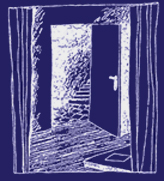LITTERARIA PRAGENSIA
NB: From February 2021, the journal has a new website. This website continues to serve as an archive of past issues.
Litteraria Pragensia: Studies in Literature and Culture is a peer-reviewed international academic journal listed in SCOPUS, EBSCO, the ERIH PLUS Database, the MLA Directory of Periodicals, and the Carhus Plus+ database. It is published twice a year and numbered continuously. From no. 57 (2019), it appears both in print form and online (Open Access).
ISSN 0862-8424 (print). ISSN 2571-452X (online).
Aims and Scope
Litteraria Pragensia: Studies in Literature and Culture publishes thematic issues focused on interdisciplinary critical debates about diverse phenomena in modern and contemporary literatures and cultures, from major movements and genres to the problems of cultural history, identity and communication, text, intertextuality, performativity and reception. Major methodologies range from Structuralism, Post-structuralism and New Historicism to Gender, Postcolonial and Appropriation Studies. An important objective of the journal is to stimulate and develop multi- and transdisciplinary cooperation within and among research projects and networks world-wide.
History
The journal emerged from the discussions about the directions in
comparative literature, cultural studies and critical theory after the
fall of the Iron Curtain. An important predecessor was the Časopis pro moderní filologii (Journal
for Modern Philology), a major publication venue of the Prague
Structuralist School (Prague Linguistic Circle) in the 1920s and 1930s.
The principal aim of the new journal has been to establish and develop
links between the legacy of Prague Structuralism and current
poststructuralist trends.
The first issue, “The Variety of
Historicisms”, was published in cooperation with scholars from the
University of California Humanities Research Institute (UCHRI) at Irvine
and the University of California at Berkeley. A full list of topics
discussed in the 25+ years of the journal’s existence is available under
the ARCHIVE tab above.
Our distinguished contributors have included Neil Ascherson, Aleida Assmann, Susan Bassnett, Sacvan Bercovitch, Christoph Bode, Rui Carvalho Homem, Natalie Zemon Davis, Augusto de Campos, David Duff, S.E. Gontarski, Stephen Greenblatt, Nicholas Grene, Ton Hoenselaars, Steve McCaffery, Jerome McGann, Tom Nairn, Michael Neill, Marjorie Perloff, Murray Pittock, Marc Porée, Annie Proulx, Alain Vaillant, Nathalie Vienne-Guerrin, and Timothy Webb.
EDITORS
Ondřej Pilný (Chief Editor), Petra Johana Poncarová, Martin Procházka (Founding Editor)
EDITORIAL BOARD
Jan Čermák (Charles University, Prague), Anna Housková (Charles University, Prague), Zdeněk Hrbata (Charles University, Prague), Mariana Machová (University of South Bohemia / Charles University, Prague), Robin MacKenzie (University of St Andrews), Jiří Pelán (Charles University, Prague), Miroslav Petříček (Charles University, Prague), Katharina Rennhak (University of Wuppertal)
ADVISORY BOARD
Ellen Berry (Bowling Green State University, Ohio), Christoph Bode (Ludwig Maximilian University of Munich), Rui Carvalho Homem (University of Porto), Elke D’hoker (KU Leuven), David Duff (Queen Mary University of London), Matthew Guterl (Brown University), Malcolm Kelsall (Cardiff University), Mária Kurdi (University of Pécs), Andreas Mahler (Free University of Berlin), Neil Murphy (Nanyang Technological University Singapore), Máirín Nic Eoin (Dublin City University), Murray Pittock (University of Glasgow), Sabine Schülting (Free University of Berlin), Randolph Starn (University of California at Berkeley), Timothy Webb (University of Bristol)

